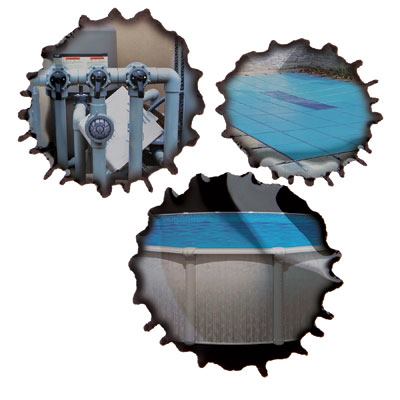The rising cost of petroleum is making its impact felt throughout many pool and spa manufacturing segments.
“It’s not just the effect on gasoline prices and freight,” said Mark Laven, president and CEO of Latham Plastics in Latham, N.Y. “We’ve seen the escalation of raw material prices that began last year continue to accelerate in 2011.”
In recent months, the price of crude oil has hovered around the $105-per-barrel mark — well in excess of the $75 that has constituted petroleum’s average cost over the past five years. The price per barrel continues to rise at a gradual but steady pace.
Because petroleum is a major component of the resin used in the production of many plastics, manufacturers in the pool industry are finding it increasingly expensive to create fiberglass pools and steps, polymer pool panels, and vinyl covers and liners. Products such as pumps and filters, whose designs incorporate plastics, also will likely be affected by rising petroleum costs.
“The price of our resins has gone up four times in the past four months,” said Scott Cook, president of Family Fun Corp. in Louisville, Ohio. “Anything oil-based is getting more expensive to produce.”
So far, most manufacturers have responded to the increase by absorbing much of the higher costs. “We know that mid-season price increases are disruptive to our customers,” Laven said, “and we try to avoid those whenever possible.”
Other manufacturers are working to offset the price hikes by proactively working with supply chain networks. “We have a team that’s dedicated to making certain that we’re negotiating the best prices out there,” said Carlos Del Amo, vice president of marketing and product development at Pentair Water Pool and Spa in Sanford, N.C. “We’re monitoring the market day by day.”
Still, many suspect that some degree of price increase will be an unavoidable outcome if crude oil costs continue to climb.
“The only other thing you could do is reduce the quality of your product,” Cook said, “and that’s obviously not a direction we’re going to take. That’s short-term thinking, anyway — it’ll catch up to a manufacturer in the long run.”
Though it’s clear that the rising price of gasoline is rooted in higher crude oil prices, experts continue to debate various causes of the high petroleum cost itself. Historically, oil prices have often spiked when political upheaval in the Middle East disrupts the international oil trade, but many agree that this factor alone is insufficient to create a sustained climb in price.
Increased demand for crude oil in rapidly industrializing countries like India and China also has played a major part in the current price bubble, and some blame a boom in speculation on oil futures on the international commodities market. Another commonly cited factor is monetary inflation: The U.S. dollar — the currency in which oil is traded internationally — has been valued increasingly weakly against currencies such as the euro and the yen over the past several years.
The effects of the price increase are likely to be as varied and interwoven as the causes, manufacturers say.
“There’s no question that higher pricing on a barrel of oil is going to impact the entire market,” Laven said. “My hope is that if there can be some peaceful or early resolutions of these matters [in the Middle East], that maybe some of the price pressure we’ve seen will ease off.”




